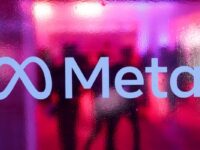Is AI’s ability to streamline petty business tasks worth the potential threats to our creative skillsets? Small-business owner Nicola Trotman explores this question.
I know our small team wasn’t the only one who had mixed reactions to the rollout of Gemini in January across our Google Workplace.
The AI pop-up boxes were met with excitement by some team members, while others, like myself, had some trepidation. There are some benefits we are currently exploring, such as the ability to transcribe a meeting, with all attendees receiving a meeting summary at the end – a tedious task that is now streamlined and there is no, “Do you remember what name so and so said?”.
It also provides transparency to those unable to join a meeting to be able to catch up in their own time. Other features, such as summarising a long email thread or rephrasing content in Google Docs, are yet to be explored – but some prompts seem pointless and more time-consuming than manually checking yourself.
As a business owner, it is natural that I just should seek out tools that streamline processes and minimise admin and I am not one to shy away from this. But as a creative, I can’t help but feel AI is slowly killing skills we have refined for decades.
I have loved writing for as long as I can remember. When I was young, I would write short stories via pen and paper by torchlight, long after the lights went out. Writing allows me to make sense of my thoughts and I, like so many other writers, get a sense of enjoyment from creating something from scratch.
If you’ve ever experienced ‘flow’, the ability to get into a mental state of operation where outside distractions disappear and you almost feel a sense of ecstasy, you’ll get what I’m talking about. Not only that, but writing is the ability to connect with readers and convey certain emotions. It’s about storytelling. And so far, it seems the AI equivalent simply cannot connect with an audience in the same way.
Sure, the sentences ChatGPT or its equivalent provide are well-written and grammatically correct. But there is a certain emotion missing – which isn’t surprising considering it isn’t human-generated. Some may feel the PR profession is on its way out, seeing as you can get a press release written within a matter of seconds. But I can promise you that what you receive will not have the same emotion and personality as it would if a talented writer wrote it for you instead. Plus, relationships and understanding the news cycle all come into play.
Of course, there are benefits to AI which I can’t shy away from. I’ve had friends use AI to streamline different aspects of their lives. From meal prepping (I’ve tried this myself and admit the recipes are somewhat bland – pro-AI people will blame the way I briefed the platform) to writing business plans; if you weren’t a writer before you can now sound incredibly well-versed in almost any topic. You can even understand your macros without ever studying nutrition. On a surface level, you can appear much more skilled than you actually are.
As part of our hiring process, we would always ask shortlisted candidates to provide a body of written work. This was a fail-safe method in the early days: you could either write well or it wasn’t your strong suit. Following the introduction of ChatGPT, this became a lot harder – all applicants were now great writers and it was difficult to dissect who was using their brains or who was inputting a brief into an AI generator.
So, we switched to more strategic-based tasks, asking candidates to respond to a creative brief. I remember reviewing one of my application and being so impressed – the girl really seemed to know what she was talking about!. My excitement soon turned to disappointment when our operations manager did a reverse brief and received the same submission via ChatGPT. A follow-up interview confirmed our assumptions, with the candidate unable to provide any further thoughts than what was already provided.
Research shows that different parts of your brain are active at different stages of the writing process. It’s said that a neuroscientist could probably figure out whether you’ve been writing or not, just by looking at your brain.
This isn’t true just for creative pursuits, but for any tasks that require thinking or problem-solving. The ability to get better at these tasks requires practice. After all, the brain is a very active organ. Just like other muscles in our body, the brain required repeated exercise to to build strength.
So while AI is great at streamlining many facets of our lives, is it worth losing the skills that make us so unique as humans?
The phrase “fake it until you make it” has never been more prevalent. And, the more we utilise these machines, the more we are fine-tuning them. On January 30, OpenAI CEO Sam Altman is briefing U.S. officials on the release of PhD-level AI capable of performing complex human tasks, which could revolutionise fields like health, science and education.
As someone who grew up alongside the internet, it was always thought that future generations’ biggest threat was social media. I often think back to my childhood and the excitement of starting a career and honing my skills. To sitting in lecture theatres and using critical thinking to analyse what I’ve been taught.
I often think about the world my daughter will grow up in and what her creative pursuits might be; whether she’ll experience the fulfilment of creating something from scratch or get the opportunity to experience flow in her creative endeavours. So, I asked ChatGPT whether my daughter would be using AI in 2050.
Naturally, it informed me that AI tools will likely assist her in creating art, music, writing, or even video content – acting as a ‘collaborator’ – and that AI-driven healthcare tools could monitor her health in real-time to predict potential issues. But its closing statement says it all, “The impact of AI will likely go far beyond just tools – AI could be embedded in most aspects of life, evolving in a way that makes it a natural part of her world.”










